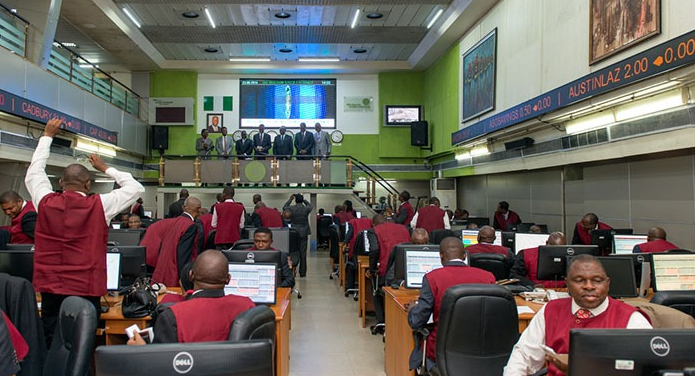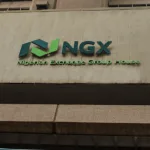The Nigerian equity market extended its losing streak on Thursday, shedding N84 billion in market capitalization. This decline was primarily driven by losses in Skyway Aviation Handling, NEM Insurance, and 26 other stocks.
The All-Share Index (ASI) fell by 0.15% to 97,978.02 basis points, while the market capitalization also decreased by 0.15% to N55.424 trillion.
Join our WhatsApp ChannelMarket Reaction to Recent Developments In the Equity Market
The Nigerian Exchange has been experiencing a bearish trend, with Thursday marking a continuation of the losses that began earlier in the week.
On Wednesday, the market suffered a significant N89 billion loss due to traders unloading banking stocks. This sell-off was triggered by the Central Bank of Nigeria’s decision to raise the benchmark interest rate, a move aimed at curbing inflation.
Key Losers and Gainers In The Equity Market
Among the notable losers, Skyway Aviation Handling saw a steep decline of 9.80%, closing at N20.70. NEM Insurance also suffered a significant loss of 9.47%, ending the day at N7.65. FTNCocoa’s shares dropped by 9.35% to N1.26.
In contrast, some stocks managed to buck the trend. C&I Leasing led the gainers with a 9.90% increase, closing at N3.44. Caverton also performed well, appreciating by 7.69% to N1.40.
READ ALSO: Equity Market Rises 0.11% As Investors Flock To Nestle Nigeria Plc Ahead Of Annual Meeting
Trading Volume and Deals
Despite the overall market downturn, the trading volume and the number of deals saw an uptick. The number of deals grew by 6.35% to 7,852, while the trading volume rose by 16.5% to 316.453 million shares.
United Bank for Africa (UBA) was the most traded stock by volume, with 50,316,438 units changing hands in 788 deals. Julius Berger emerged as the most traded security by value, amounting to N1.47 billion in 303 deals.
Sectoral Performance
Sectoral performance was mixed, with three out of five sectors ending in negative territory. The banking sector experienced the most significant decline, falling by 1.42%. The consumer goods sector saw a slight decrease of 0.05%. However, the oil and gas sector gained 0.72%, and the industrial goods sector remained unchanged.
Analyst Insights
Market analysts attribute the continued downtrend to a combination of factors. “The recent interest rate hike by the Central Bank has spooked investors, particularly in the banking sector,” said financial analyst Akinola Adeyemi. “There is also a general sense of caution in the market, as traders are wary of potential further monetary tightening.”
Despite the negative sentiment, some analysts see potential opportunities. “While the overall market is down, there are pockets of resilience, especially in the oil and gas sector,” noted investment strategist Funke Olumide. “Investors looking for value may find some attractive buys in this sector.”
Looking Ahead
The Nigerian equity market’s performance in the coming days will likely hinge on further developments from the Central Bank and broader economic indicators. Investors will be closely watching any policy announcements and market reactions.
However, the Nigerian equity market continues to face significant challenges, with a recent streak of losses reflecting investor anxiety over monetary policy changes. However, as history has shown, market conditions can change rapidly, and opportunities often arise even in the most bearish environments.
Emmanuel Ochayi is a journalist. He is a graduate of the University of Lagos, School of first choice and the nations pride. Emmanuel is keen on exploring writing angles in different areas, including Business, climate change, politics, Education, and others.


















Follow Us